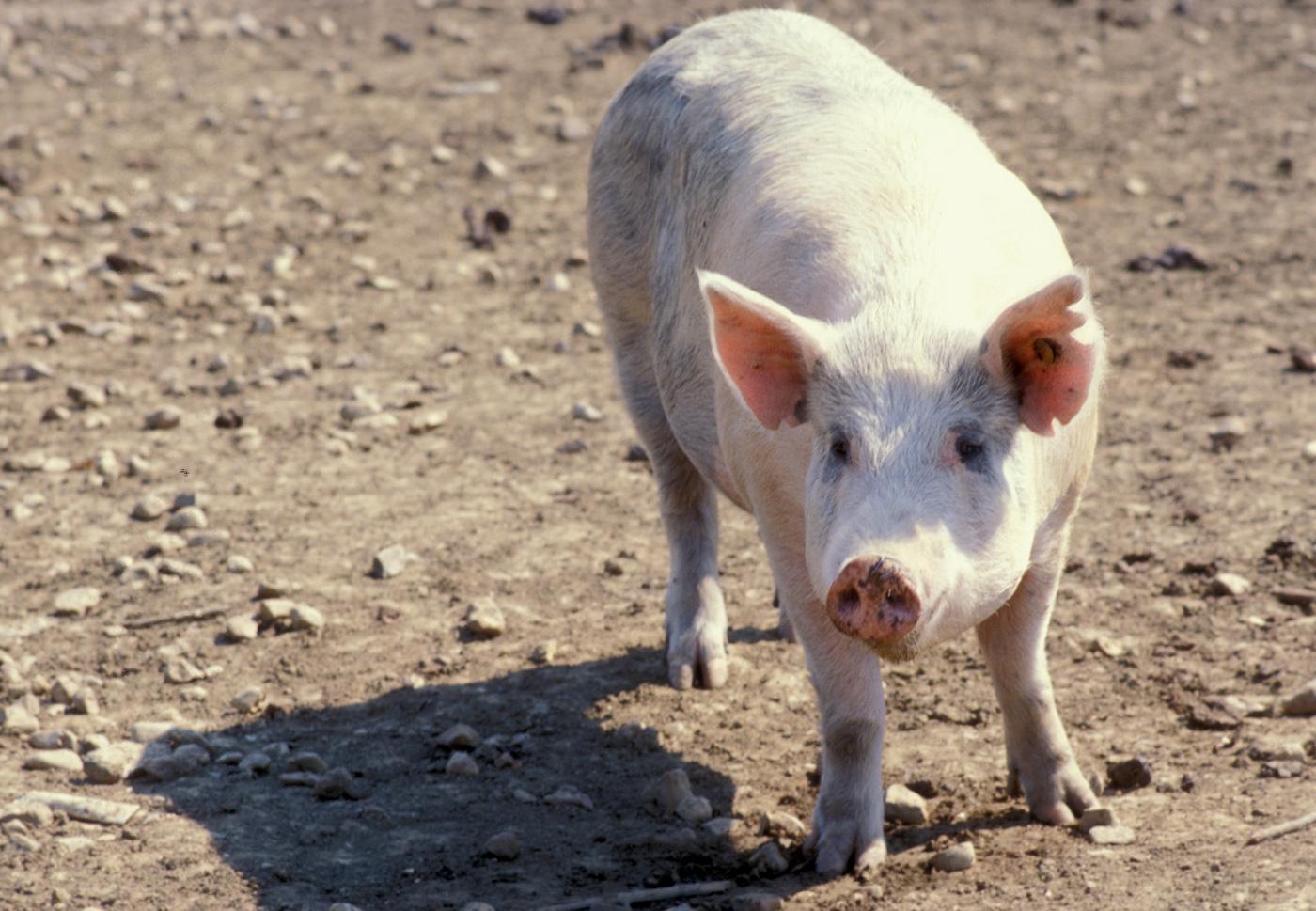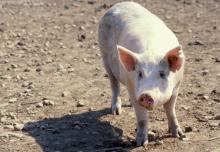Information Possibly Outdated
The information presented on this page was originally released on September 17, 2012. It may not be outdated, but please search our site for more current information. If you plan to quote or reference this information in a publication, please check with the Extension specialist or author before proceeding.
Good hygiene practices remain best flu defense
MISSISSIPPI STATE – Mississippi veterinarians and livestock officials will address new swine flu concerns with increased educational messages and surveillance during the upcoming State Fair in Jackson.
Mark Crenshaw, swine specialist with the Mississippi State University Extension Service, said like humans, pigs occasionally get the influenza virus. Typical pig influenza viruses do not cross over to humans, but a new strain is proving to be an exception. As with all flu strains, frequent hand washing and other good hygiene practices are the best defense.
“This year, we are seeing a new swine strain, H3N2v, that has been found in humans exposed to pigs at fairs or during work,” he said. “As of the first of September, none of the 275 cases in the United States has been reported in Mississippi.”
Crenshaw said because of the outbreaks in other states, Mississippi’s fair officials are making plans to help prevent similar cases this fall. Letters addressing influenza issues are going to exhibitors, and posters promoting good hygiene will be prominent throughout the fairgrounds. Veterinarians on hand will closely monitor the health of all animals at the show.
“One good thing for us is that pigs are only at the fairgrounds a short time compared to fairs in some other states,” he said. “Hogs arrive in Jackson on Sunday, Oct. 7, and leave about 24 hours later, after competition on Monday.”
Crenshaw said exhibitors are being encouraged to monitor their animals’ health before, during and after the show.
“If hog owners see any signs of illness in their pigs before the show, they should keep the animals at home. If symptoms develop at the show, they should notify the fair veterinarian immediately. Symptoms include coughing, sneezing, runny nose or loss of appetite,” he said. “People with flu-like symptoms should also stay home because they can transmit flu to pigs and other people.”
Dr. Carla Huston, associate professor with the MSU College of Veterinary Medicine, said good hygiene practices are always important around livestock. In addition to the potential for flu, cases of illness from pathogens such as salmonella and E. coli are threats if people are not careful.
“We are recommending the standard precautions in the barn area at the fair. Those include not using baby bottles, pacifiers or strollers in the barns, and avoid eating or drinking around the animals as well as avoiding any other hand-to-mouth activity, such as smoking or chewing tobacco,” she said. “People should wash their hands after handling animals or their equipment. These practices will protect visitors and exhibitors not only from the flu, but also from other potential pathogens, such as E. coli and salmonella.”
Huston, who also works with MSU's Extension Service, said this strain of flu does not appear to be any worse than the seasonal flu that people face normally. But, as with all flu cases, those most at risk include children under age 5, adults over 65, pregnant women or individuals with compromised immune systems.
“Some good news is that H3N2v is rarely transmitted human to human, and properly cooked pork products are safe to eat,” she said.
The veterinarian said most of the cases nationally appear to be from animals in open populations, such as those involved in livestock shows that have contact with many other animals, not animals in confined swine operations.





